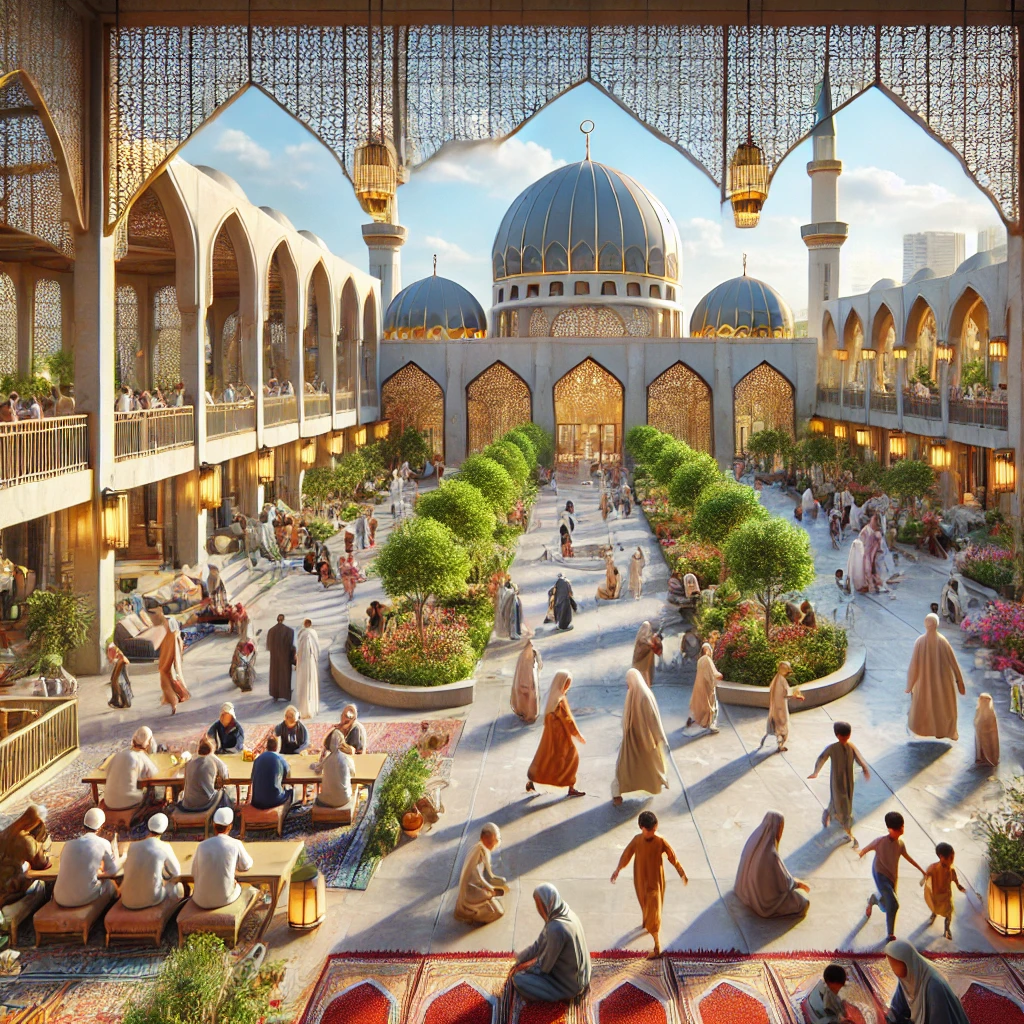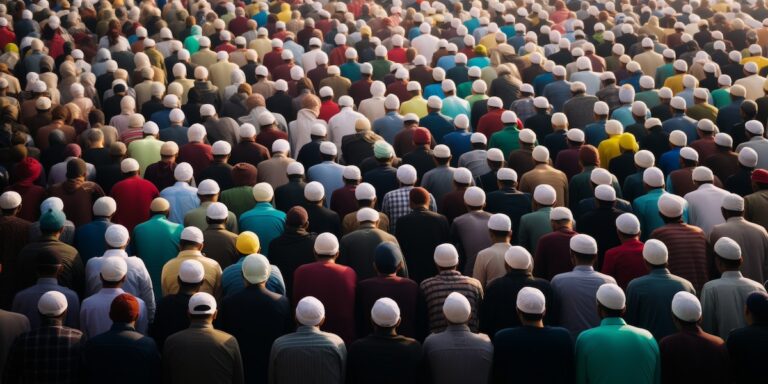Diversity of Islamic Spaces: Classification of Mosques
Introduction
There are Five pillars of Islam, The Salah is the one of most important pillars and represents significant interaction with Allah. The Salah, referred to as “Prayer” in English, is an essential act of Ibadah in Islam, For Muslim Ummah, praying five times daily in the mosque is highly encouraged. It is 27 times more rewarding (Sawab) than prayers in home. According to the Hadith, unless there is a valid reason, a Muslim’s prayers will not be granted if in the house. Nowadays, there are several types of mosques and Prayer places around the world- Jumuah Mosques, No-Jumuah Mosques, Musallah, Islamic center, etc. Here, we’ll be describing all the classifications of the Mosques.
Table of Contents
| Classification of Mosques | |
| 1 | Jumuah Mosque |
| 2 | Non-Jumuah Mosque |
| 3 | Only Jumu’ah Arrangement |
| 4 | Islamic Center |
| 5 | Islamic Institution |
| 6 | Public Commercial Place |
Jumuah Mosque: A Holiest Gathering
The Jumuah mosques are designated for the weekly congregational prayer known as Jumuah, held on Friday, the holiest day in Islam. The five times prayers are also performed regularly. Jumuah Mosque is typically spacious, and minarets and, domes and elements reflect the grandeur of Islamic culture. Worshipers gather to listen to the Kuthbah (Sermon) and perform the prayer together
Non-Jumu’ah Mosque: A Center of Daily Worship
Non-Jumuah mosques is for the daily five times worship Fajr (Morning), Dhuhr (noon), Asr (Afternoon), Maghrib, and Isha. Non-Jumuah mosques are not offering any Jumuah congregation. Typically, non-Jumuah mosques in various sizes and other religious activities.
Only Jumu’ah: Congregation On Friday
The populated Muslim area and smaller places is limited facilities for prayers, serves as convenient prayer spaces specifically designated for the Jumu’ah prayer. These Jumu’ah facilities may be set up in community centers, rented spaces, outdoor areas, or even in open fields.
Islamic Institution: Nurturing The Future
Islamic educational institutions offer a religious academic curriculum alongside practising how to perform the prayer, as well as learning the Holy Quran. So, there are separate spaces for the prayer congregation. These institutes play a vital role in nurturing the intellectual, moral, and spiritual development of Muslim students, equipping them with knowledge of their faith and values.
Public Commercial Place: Embracing the Environment
Public commercial space for congregational prayers can offer a dedicated, respectful, and easily accessible environment for Muslims. Muslims in ambient environments, especially in bustling areas like shopping centers, office rooftops, and similar hubs.
FAQs (Frequently Asked Questions)
1. What distinguishes a Jumuah Mosque from other mosques?
A Jumuah Mosque specifically caters to the Friday congregational prayer, known as Jumu’ah, which holds special significance in Islam.
2. Are Jumuah-only musallahs common in urban areas?
Jumuah-only mullahs are more common in areas where Muslim populations are smaller or where there is limited access to mosques.
3. What services do Islamic centres typically offer?
Islamic centres provide many services, including prayer facilities, educational programs, social events, and community outreach initiatives.
4. How do Islamic schools balance religious education with a standard academic curriculum?
Islamic schools integrate religious instruction into the curriculum alongside subjects such as math, science, and language arts, ensuring students receive a comprehensive education.
5. Can public commercial places play a role in promoting Islamic culture?
Yes, public commercial places can serve as platforms for promoting Islamic culture through halal businesses, cultural events, and community gatherings, contributing to greater awareness and understanding of Islam in society.
This comprehensive guide aims to provide insight into the diverse array of Islamic spaces and their significance in fostering spiritual growth, community cohesion, and cultural exchange. Whether one seeks solace in the tranquillity of a mosque or engages in the lively discourse at a public market, Islamic spaces offer meaningful opportunities for individuals to connect with their faith, heritage, and community.





